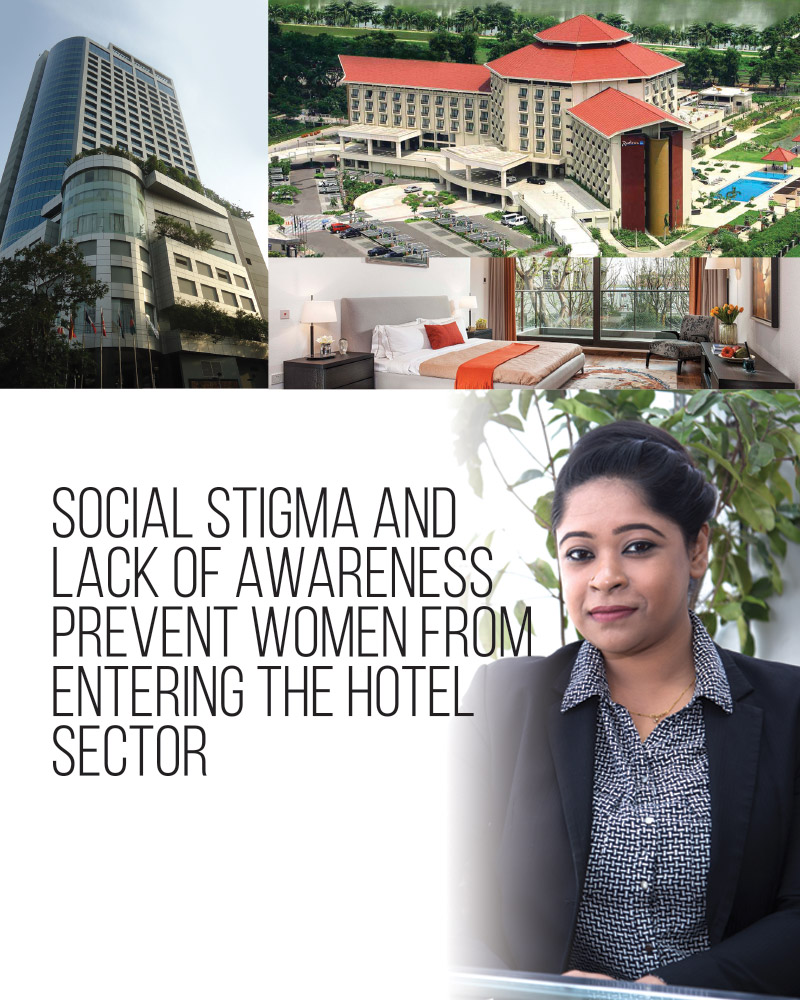
Editor’s note:
As a part of our journalism in the fintech sector, we often look into diverse fields and how IT and fintech operate within those fields. We recently probed into the hospitality and hotel sector to find out about the ERP and other IT solutions Bangladeshi hotels are incorporating. In the process we learned about other issues that are also worth reporting. With that background, here is a Fintech report that brings forth the issue of the presence of women in the hospitality and hotel industry.
Tourism in Bangladesh has grown exponentially in the last two decades. According to Bangladesh Tourism Board figures, foreign exchange earnings from tourism and other travels were over two thousand million takas in 2001. This rose to Tk5562.70 million by 2010, doubling the amount of income from tourism in just ten years.
Despite the steady growth in tourism, there is a dearth of skilled human resources in Bangladesh’s hospitality industry, with the presence of women being vastly disproportionate in the sector.
“Right now the ratio is not satisfactory, it’s probably at 15 percent,” said Md Al-Amin, Director of Sales and Marketing at The Westin Dhaka. “I think, this industry needs a lot more involvement of women,” he added.
While the lack of skilled resources is a result of a lack of necessary academic and vocational institutions, it is also directly linked to how career at the hotel and hospitality industry is perceived by the general public. This is also the reason why it is a stigma for women of ‘decent’ families to go into this profession.
“My family would never be OK with me working in the hotel sector, no matter how reputed the hotel is,” said Aqeeda Tabassum Rimi, a corporate and teachers’ training professional based in Dhaka. When asked if an attractive remuneration package would make any difference, Rimi said that it might with her immediate family but not with others. “My mother would still implore me to find another job,” she said.
“There are hospitality and tourism departments in universities now. But I go to the workshops they hold and I see like 20 students attending. There is not much interest because it is not being presented as a lucrative profession that it actually is,” said Sanjida Islam, PR and Event Specialist at The Westin Dhaka.
“The ignorance about the sector is so immense that many people don’t even know that there are fully corporate structured organisatoins that run the operations in these hotels. They think there is a kitchen and a front desk, that’s what constitute a hotel,” Sanjida Islam added.
At Westin, where Sanjida works, the ratio of women employees is still quite steep against male staffs, even though the management seeks to recruit more women. “Right now the ratio is not satisfactory, it’s probably at 15 percent. Whereas, as a brand we would ideally want more than 40 percent,” Md Al-Amin, the sales and marketing director at Westin said.
Hotels, catering and tourism is a large and fast-growing service sector, with an average female participation of 55.5 percent at global level, according to the Bureau for Gender Equality, Sectoral Activities Department of the International Labour Office data. These women employed in a wide variety of roles, including as cleaners and kitchen staff, front-line customer service workers and senior management. The recruitment, retention and promotion of talented women for technical and managerial leadership positions will be necessary to meet the future skills and productivity requirements of the sector, the ILO report said. Moreover, women will comprise an even larger proportion of the sector’s client base as more will travel for business and leisure. This too will have an impact on gender equality in the recruitment of employees.
To address the imbalance in Bangladesh, Md Al-Amin says, there has to be awareness among women about the benefits and prestige in the sector. “Women should consider it as an attractive profession and they should know that this is a safe environment. There, I think the social perception needs to change. Also if government motivates people and market this industry then people will be coming into it, and good quality people will be interested. And then we can set a benchmark and compete globally,” Al-Amin said.
Sanjida Islam similarly thought that a proper understanding of the sector is extremely important. “I’ve been told many times that ‘Westin is a good brand, but you should move to something better whenever you get the chance’. But why should I? The Westin Dhaka is owned by Marriott International, which is the largest hotel chain in the world. It’s funny how people think I should quit this job when in reality It is really prestigious to work at Westin,” Islam said. ■








